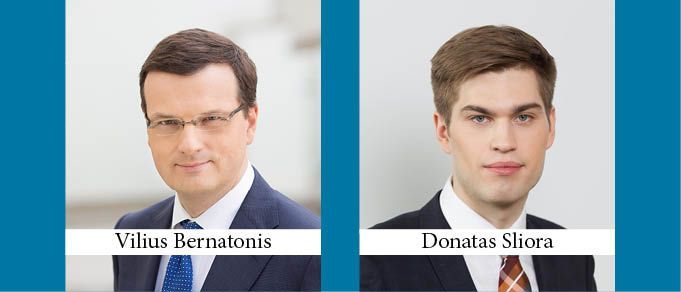Money laundering and corruption are closely related; therefore, they should be tackled systemically. Lithuania’s setting in these areas is rather ambiguous – it is ranked among the top performers when it comes to an anti-money laundering regime and its effectiveness, but it performs worse than EU average when it comes to the perception of corruption (Lithuania was ranked 38th in the Global Corruption Perceptions Index reported by Transparency International in 2016).
Lithuania’s fight against money laundering and corruption manifests itself not only in legislative initiatives but also in the enforcement thereof and the strong stance of the supervisory authorities. Local authorities successfully combine AML and anti-corruption efforts with other objectives, such as becoming the FinTech hub in Europe.
Consistent Approach by the Legislator
A number of legislative initiatives have been implemented in the areas of AML and anti-corruption. On July 1, 2017, the Lithuanian Parliament adopted a revised wording of the Law on Prevention of Money Laundering and Terrorist Financing, successfully transposing Directive EU 2015/849 (the “4AML Directive”) and harmonizing national legislation with Regulation EU 2015/847 in a timely manner.
The amendments to the law expand the scope of its application, revise the sanction regime, and establish requirements for storage and disclosure of data relating to beneficial owners. The Lithuanian legislator took advantage of the opportunity and revised the law by transposing the material rules of subordinate legal acts. This way a level playing field for the obliged entities was created and the AML system was made clearer. Such amendments include, among other things, establishing remote identification measures and rules for reporting suspicious transactions.
Lithuania’s approach to the AML regime is rather strict compared to other jurisdictions. Nonetheless, as the legislator seeks to keep Lithuania attractive to financial sector participants (especially to new market entrants), it is taking advantage of exemptions laid down in the 4AML Directive. For example, the legislator allows reloadable electronic money products to be offered without customer due diligence with a limit of EUR 150, also applying simplified due diligence when the total amount transacted through a payment instrument is less than EUR 1000, etc.
On July 15, 2017, Lithuania became the 42nd party to the Organization for Economic Co-operation and Development Convention on Combating Bribery of Foreign Officials in International Business Transactions, which sets standards for the criminalization of bribery and establishes a set of measures for ensuring the effectiveness of the relevant regime. Lithuania will now undergo a systematic review on the implementation of anti-bribery laws and their enforcement in practice.
Strong Stance of the Supervisory Authorities
The supervisory authorities responsible for the overall implementation of the AML measures, such as the Financial Crime Investigation Service, and the Bank of Lithuania, which is responsible for supervising financial market participants, do not compromise when it comes to the enforcement of the AML regime. This strict approach seems to be effective as the number of reported suspicious transactions increases every year and resulting investigations reveal actual money-laundering cases.
Lithuania seeks to become a FinTech hub in Europe; nonetheless, the Bank of Lithuania insists that the goal should not be sought at the price of enforcement. These statements are backed up by actions – one third of all planned investigations of financial sector participants concern the implementation of the AML regime. There are no concessions when it comes to licensing new market entrants either.
The fight against corruption is also gaining momentum, as the number of investigations carried out by responsible authorities is steadily increasing, resulting in the revelation of serious cases of political corruption as well as systemic acts of corruption by state officers.
Impact on Economy and Businesses
The shadow economy is estimated to constitute 20 to 25 percent of the GDP of Lithuania. Having effective AML and anti-corruption measures will most likely decrease the size of the shadow market, thus having a positive effect on the national economy in general. Lithuania would also benefit from the increase in investments as the country becomes more attractive to foreign capital.
Nonetheless, strict AML and anti-corruption requirements may become a burden for some businesses. The constantly increasing AML and anti-corruption compliance requirements impose significant costs on obliged entities. Such costs are in particular burdensome for new market entrants who have to establish compliance measures without having constant income.
By Vilius Bernatonis, Partner, and Donatas Sliora, Associate, TGS Baltic
This Article was originally published in Issue 4.9 of the CEE Legal Matters Magazine. If you would like to receive a hard copy of the magazine, you can subscribe here.
